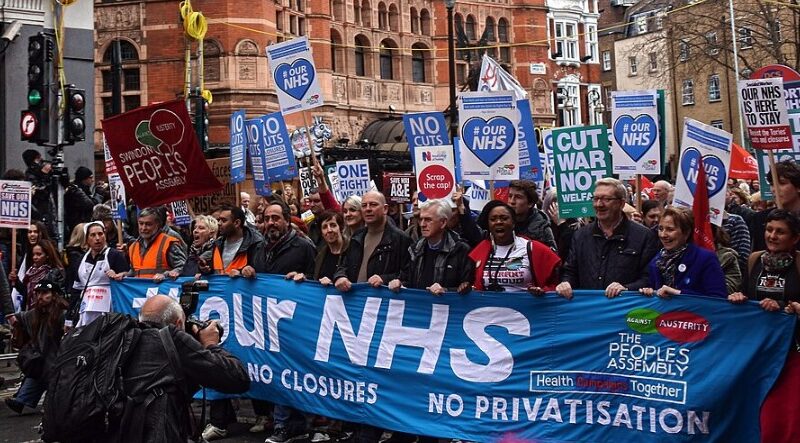By Nick P
Last October, it was revealed that residents of Sugar Hill Lane and Wordsworth Drive in Oulton, a village just south of Leeds, faced uncertainty about the future of their homes. The 70 houses that comprise these streets were built over 50 years ago by the National Coal Board, initially as a short-term measure, as accommodation for miners who worked at the nearby colliery.
Now, however, Pemberstone, a property investment company based in Worcester, has purchased the properties from the NCB’s successor company, UK Coal, and is seeking planning permission from Leeds City Council to demolish them, in order to provide space for new, expensive houses that will be unaffordable to the current tenants, most of whom can be evicted with two months’ notice.
To combat these plans, the tenants have founded a campaign group called Leeds 26 Save Our Homes, which has National Union of Mineworkers support, and they are lobbying the council. It has been suggested that the council, rather than allowing a remote private property company to cause major disruption to the lives of dozens of mainly low-income families, intervenes to bring the houses into its own social housing portfolio and let them to the current residents at council rates.
Socialists should fully support this campaign and these demands. It must also be said, however, that this situation is part of a wider story about the housing situation in Britain today. It is not uncommon to hear the use of the term ‘housing crisis’ when the myriad problems that the current property market poses for citizens are discussed. These include the prevalence of high rent in the private sector, particularly in London, insecure short-term contracts, a power imbalance that favours landlords over tenants, and poorly maintained properties.
Of course, this is not the experience of everyone. Nonetheless, statistics demonstrate the existence of these problems. Tenants spend an average of 27 percent of pre-tax income on rent. In London, this rises to an astonishing 49 percent, and this is before bills. In 2013, the housing charity Shelter estimated that 30 percent of privately rented accommodation did not meet the ‘decent homes criteria’. Contracts in the private sector are an average of six months, which may give much needed flexibility to young professionals, students, and others who wish to relocate at fairly short notice, but it is are far from ideal for those who wish to have a secure, settled home. It seems that in some ways, conditions in the private rented sector are analogous to those in many workplaces, where the nature of employment is becoming more casual and insecure.
The alternatives to private renting; home ownership and social housing, have become harder and harder for the majority to obtain. Following the Second World War, successive governments, their hand forced by the strength of the working class and its refusal to return to the conditions of the 1930s (graphically outlined in George Orwell’s classic ‘The Road to Wigan Pier’), embarked on mass council house building programmes. As pointed out by Owen Jones in his 2011 book Chavs, from 1945 to 1979, at least 75,000 council houses were built per year. With the accession of Thatcher, however, and her subsequent war on the gains of organised labour, several million council homes were sold off at subsidised prices to their occupiers throughout the 1980s, a practice that continues today. Local authorities were barred from using the proceeds – £40 billion between 1980 and 2005 – (James Meek, Private Island, 2014, p. 192) to replenish the stock. As Meek points out, the private sector has simply failed to plug this shortage.
Home ownership has become a mere dream for the younger generation. Only 40 percent of those in their 30s currently have the pleasure (Robert Peston, WTF, 2017). Recent policies announced by Teresa May’s Conservative government, such as abolishing stamp duty for first time buyers on properties worth up to £300,000 and pumping £10 billion into the ‘Help to Buy’ scheme (where the government stumps up 20 percent of the price of a house as an interest free loan) are unlikely to make a difference to many. It is predicted that the first measure will simply result in house prices increasing. ‘Help to Buy’, meanwhile, does not take away the need to get a deposit, which is difficult when you’re paying rent and you don’t have a well-paid job.
A final issue, which links back to the brief case study at the beginning of the article, is that of gentrification. Broadly speaking, this term denotes developers focusing on providing expensive housing in areas with traditionally working-class populations, thus gradually pricing those on lower incomes out. Anna Minton’s recent booklet Big Capital: Who is London For, is an excellent analysis of how the UK’s capital’s house prices have spiralled out of control due to the super rich seeing property as a safe investment, and construction companies, despite having notional obligations to provide affordable housing, manipulate ‘viability assessments’ to escape this. Crucially, the text points out that the housing crisis, in London at least, transcends often quoted pro-capitalist explanations for it such as ‘overly tight planning regulations’.
Due to housing being such a desirable commodity (and a safe bet for investors in regions of instability), simply building more will not remove the problems of the wealthy purchasing properties and hoarding them. It could be argued that the same rule applies to the ‘buy to let’ market more generally. The gross disparities of wealth that exist in Britain mean that even if many more houses are built in the private sector, they will simply be absorbed into the rental sector.
To solve this problem, we need to establish that a decent, affordable home is a fundamental human right. It would be necessary for a Labour government to launch a major housebuilding programme, with the express aim of providing high quality accommodation to all at reasonable rents. In addition, there should be a Tenants Charter, which hands citizens genuine control and power over their houses.
January 22, 2018



